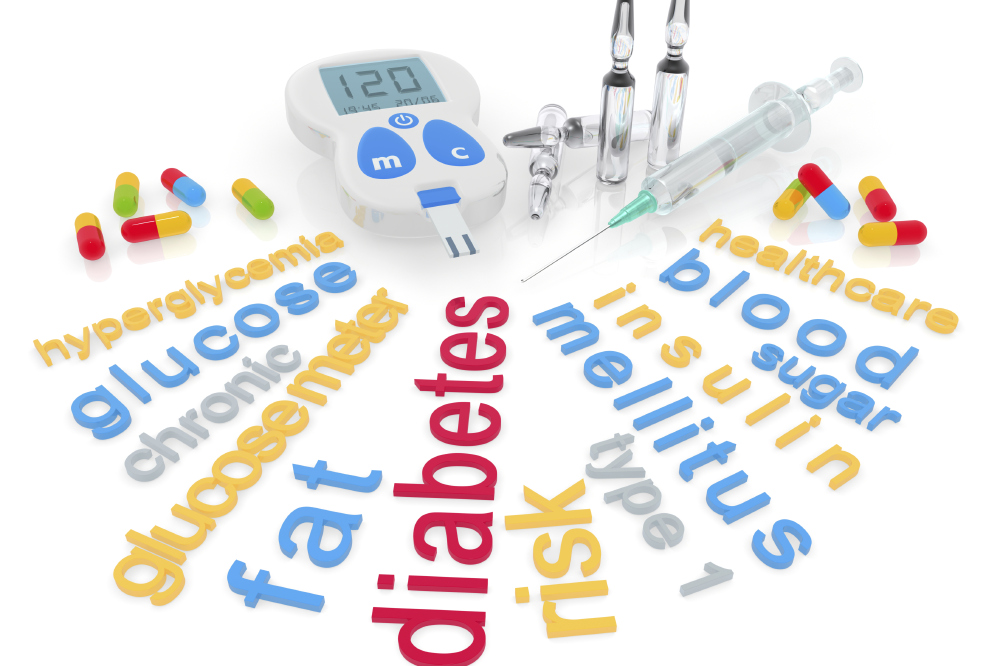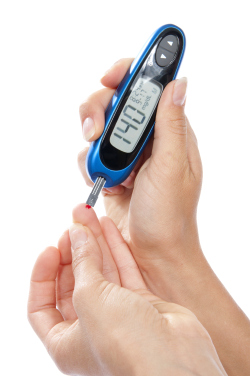
Type 2 Diabetes is on the rise
Type 2 diabetes is a growing health issue in the UK, with experts predicting that by 2020 the number of people affected by the condition could have soared by 98 per cent, due to a rise in obesity and our increasingly sedentary lifestyles.
At this current time, it is believed that approximately 2.9m people in the UK are affected by this condition, with 90 per cent of adult sufferers having Type 2 diabetes. More worryingly, it is predicted that there could be an additional 850,000 people that have the condition but are undiagnosed.
To help us understand the symptoms of Type 2 diabetes and provide some tips relating to how we can change our lifestyles to lessen the affects of the condition, Dr Hilary Jones, medical adviser at online clinic HealthExpress.co.uk, offers his advice:
What are the symptoms?
Type 2 diabetes is much more common than Type 1. Individuals tend to be born with Type 1 diabetes whereas Type 2 is a condition that is developed later in life, and in some cases can be attributed to obesity.
 Unknown to many, diabetes is actually the leading cause of kidney failure, blindness and lower-limb amputation and it increases the likeliness of death from heart disease and stroke if left untreated, so it is imperative that you consult a GP for routine regular check-ups and as soon as possible if you are concerned that you are experiencing symptoms.
Unknown to many, diabetes is actually the leading cause of kidney failure, blindness and lower-limb amputation and it increases the likeliness of death from heart disease and stroke if left untreated, so it is imperative that you consult a GP for routine regular check-ups and as soon as possible if you are concerned that you are experiencing symptoms.
If you are unsure what the symptoms are, then I have listed below the top 10 signs that you could be suffering from Type 2 diabetes:
- Feeling thirsty constantly and having a very dry mouth
- Feeling tired and drowsy the whole time regardless of how much sleep you are getting
- Urinating frequently and needing to go to the bathroom more often than usual especially during the night
- Finding you are often constipated
- Noticing yourself losing weight even though your diet and lifestyle has remained the same
- Muscle loss
- Finding your vision blurred and your eyes dryer than normal
- Cramps in your legs when you are walking
- Skin infections
- Regular bouts of thrush or regular itching around the sexual organs
What treatments are available to you?
If you have been diagnosed with Type 2 diabetes, Metformin medication is the most common treatment. This is a drug that helps to lower your blood sugar level by lowering the amount of glucose absorbed from food, lowering the amount of glucose produced by the liver and increasing the body’s response to insulin.
However, there are a number of other medications available – including Glitazones, Sulphonylureas, Prandial glucose regulators and Alpha glucosidase inhibitors, to name a few, and it will be up to a GP to decide which is the best treatment for you.
How can you lessen the effects of Type 2 diabetes?
If you have been diagnosed with Type 2 diabetes, its important you keep to the treatment plan that your doctor has prescribed.
However, studies have shown that changing elements of your lifestyle can help lessen the symptoms of the condition, and in some cases Type 2 diabetes has been reversed. Below, I have suggested some of the small changes you can make today to help manage your diabetes:
30 minutes of exercise a day or even a couple of times a week – Exercising regularly not only keeps you fit and leaves you feeling more energised but is also a key factor in preventing diabetes since regular exercise will help you shift excess weight rapidly.
Increase your intake of fruit and vegetables – Vegetables provide you with vitamins, minerals and fibre, which help you to balance your diet overall and maintain a healthy weight.
Eat more fibre – Fibre lowers blood sugar by slowing down the digestive process and the speed in which glucose enters the bloodstream. Fibre can be found in cereals, beans, breads and fruit and vegetables.
Eat less fatty and sugary foods- Eating a lot of fatty and sugary foods can lead to you being overweight – which is just going to aggravate the condition more. Losing just 5kg, even over several years, can reduce the risk of diabetes by 50 per cent. I generally advise people to trim fat off meat and use more monounsaturated oils, such as olive oil, for cooking.
Try to cut down on processed carbs – Cakes, pastries, French fries and so on are extremely bad for cholesterol and should be consumed as little as possible. Substitute for whole grains and whole-wheat bread wherever possible.
Treat fizzy drinks and other drinks high in sugar as treats – Thirst should be quenched with water as much as possible. Juices, cordials, fizzy drinks and flavoured waters contain much more sugar than you may think and therefore cause weight gain. Excessive body fat hinders the breakdown of and use of glucose, which is essential for energy, so these drinks can be counter-productive.
Don’t eat near bedtime – This will prevent high blood sugar levels during the night.
Get a at least 6 hours of sleep a night – This gives the nerves time to recover and all other systems time to settle and rest.
Try to stop smoking or at least cut down – Smoking is proven to be a risk factor for insulin resistance, which is when your cells struggle to use the insulin produced by your body correctly.
Drink alcohol only in moderation – Heavy drinking can also reduce the body’s sensitivity to insulin which can trigger Type 2 diabetes. Many alcoholic drinks also contain a huge amount of calories.
Tagged in Health Diabetes Dr Hilary Jones

